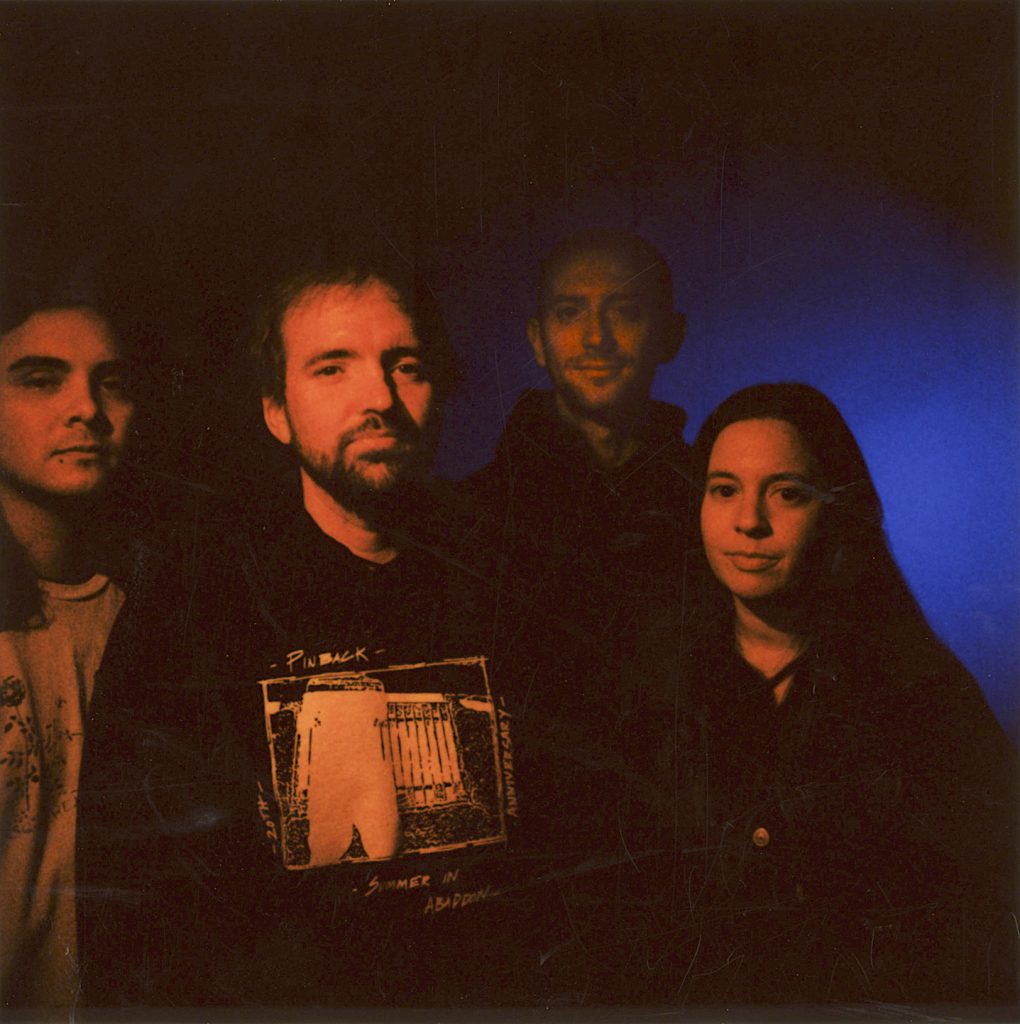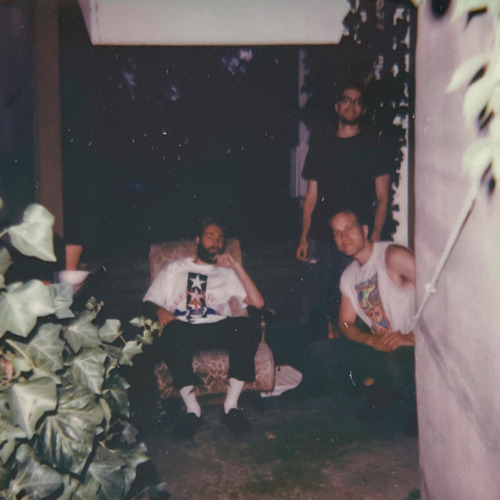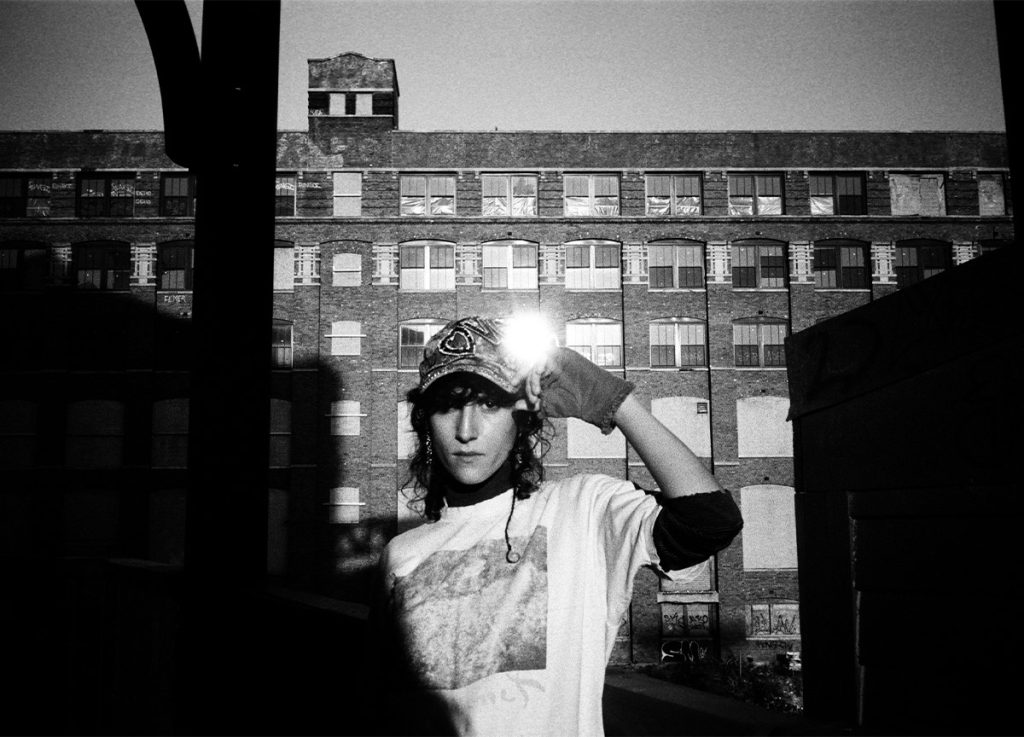

Goon
We always think we have a plan. We will walk into a situation with a purpose and an
idea, only to find that life has other things in store for us. Goon frontman and creative
mastermind, Kenny Becker, had a record’s worth of new songs ready to record, studio time
booked, and a vision for how it would all play out. But weeks into the recording, life hit him like
a lightning bolt in the form of the sudden dissolution of his marriage and his subsequent psychic
spiral. Blindsided by heartbreak, the music Becker had written for the record began to take on
new meaning. What had come from joy was now something closer to agony. In the friction of
that moment, Becker pushed his band—and his songwriting—into stranger territory. Facing
down the pain and disappointment of life, the band created a masterpiece with their new album,
Dream 3.
Goon began in 2015 as singer and multi-instrumentalist, Kenny Becker’s, solo project,
releasing a compilation of his best home recordings, the 2016 EP Dusk of Punk. With a full band
in tow, Goon released the band’s first full-length, 2019’s Heaven is Humming on Partisan
Records. Becker recruited a new band—Andy Polito on drums, Dillon Peralta on guitar, and
Tamara Simons on bass—and recorded the self-released Paint By Numbers 1. A second LP, Hour
of Green Evening, soon followed, as well as another EP, Red Ladder, in 2022.
To support Hour of Green Evening, Goon hit the road hard, touring and playing shows
with Built to Spill, Jadu Heart, Slow Pulp, Teethe, Squirrel Flower, and many others. In the
midst of all this, the band signed with Philadelphia label Born Losers and began recording their
next LP with Claire Morison at Wild Horizon Sound in Los Angeles. Dream 3 melds the
intimate, lo-fi stylings of Goon with the live-band sound of Hour of Green Evening; a veteran
band exploring every aspect of their sound, pushing themselves into new musical and emotional
realms.
“I began this record so excited,” says Becker. “The songwriting was less scripted, letting
me loosen up the reins a little and follow whatever idea seemed most interesting. It started off as
a really joyful recording process. Then came the most devastating time of my life.”
The result is an often darker, more introspective album, built on personal loss and the
chaotic crumbling of the outside world, without losing Goon’s signature sense of strangeness and
wonder. Weaving lyrics about personal and ecological collapse with references to baseball,
aliens, and Tony Soprano, the record expands Goon’s sound while holding close to the core
identity of the band. Dream 3 offers an exquisitely crafted sonic world, one full of heartbreak and
pain, but also brimming with color and life, the hope of better days to come.
“Begin Here” is the gateway into the record. The song emerges in a dreamy,
reverse-guitar haze, Becker’s voice hovering over Braden Lawrence’s drums like a bird in flight,
surveying the green wreckage of his world. “With ligaments split at sunrise/Bubbling dirt from
my mouth,” Becker sings, “I’m open and scraped and doe-eyed.” It’s the sound of a band
discovering new life after torment, the way cataclysm brings its sufferers closer. Becker drops
the surreal imagery for something more direct, referencing his bandmate as he sings, “Let me cry
to Tamara.”
“The song started as a little reversed guitar progression that I had kicking around for a
while,” says Becker. “I showed it to our bass player, Tamara, who had a strong reaction to it and
insisted we flesh it out. When I sing, ‘Let me cry to Tamara’ at the end, that’s because it’s what I
was doing all the time we were recording it. To me, that song has this sunny, upbeat melody, but
it’s coming from a place of total despair. I like that tension.”
“Closer to” dives right into the muck, with Andy Polito’s drums driving the song
forward over Dillon Peralta’s meandering guitars. Becker sings, “Right now in the
sunshine/Form a vowel/Then bite/Feel around/And pick up something off the ground.” The song
rises into a kind of frenzy, the chaos peaking, before crashing down into a kind of psychedelic
haze, without ever losing its sense of melody. Becker sings in a kind of surreal, resigned
persistence: “Let’s try/Linger on/With the scum atop the pond,” with a “ghost mouse running all
around/And now dead in the ground.”
“The lyrics almost sound like a list of commands or directions for a sacred ritual,” says
Becker, “like seeking the divine through the mundane. I was going through heartbreak, preaching
to myself a little bit. I didn’t want to hold onto anything too aggressively. I just imagined myself
as pond scum, this thing that sits there, floating. Not going anywhere particularly but not
disappearing either.”
The lilting “For Cutting the Grass” feels deceptively light, as Becker describes an
evening baseball game: “In half light/Near the weekend/Some throwing/Some were
swinging/Unmake the ruddy ground.” But in this pleasantness a simmering darkness always
intrudes, with “new nightmares coming down.” The song is full of nervous energy and wonder,
with a trace of fear lingering just on the fringes.
“This was the first song we brought to Claire’s studio,” says Becker. “At the time, things
felt light and exciting. I decided to frame the disruption of all this as aliens visiting earth in the
middle of a baseball game.” But what begins as a nightmare becomes something different, as
these celestial visitors aren’t coming with destruction, but with a stranger vision. “Soon it will
hover above/Reaching out.” Even the aliens in Becker’s world are longing for connection.
“Patsy’s Twin” is the mysterious, conflicted heart of the record. Becker sings about
“cicadas in the yard/With Katie and Olivia” and “summer undone” over a delicate guitar in the
kind of winsome blissfulness Goon are known for. The song is soon catapulted into darkness,
with serrated guitars and Becker’s fuzzed-out shriek. The song brings together all of Becker’s
interests—nature, heartbreak, death, aliens, baseball, The Sopranos, and particular qualities of
light—leaping across moods and genres, lacing it all together like stitches over a wound.
Dream 3 is a startling progression for Goon, a record filled with pain and heartbreak, yes,
but healing as well. For all the imagery of death and decay, it’s also suffused with light—“lace
light,” “half light,” “light through an orb weaver,” “morning light,” “microwave light,
“flashlight,” “sunlight.” It’s the light that makes things happen, causes plants to grow, sets the
world alive. And it’s in the light we find ourselves changing, in our fiercest struggles and in our
quiet moments, always on the verge of becoming something new again. Dream 3, with its pain
and troubled beginning, is a testament to the slow work of the light cutting through even the
darkest places.

Chief Broom
Heavy, brooding and yet uplifting, CHIEF BROOM reveals reflections of the fragility, monotony, beauty and horrors of everyday life. Centered around the songwriting of Boise, Idaho based multi-instrumentalist Shadrach Tuck and featuring a revolving cast of collaborators including guitarists William “Cheese” Cheeseman (Sly Moon Sutra) and Frankie Tillo (Thick Business, Frankie Tillo), as well as contributions from Max Voulelis (Porcelain Tongue) on drums and Jake Marchus on keys. CHIEF BROOM’s debut album “hidden in plain sight” also features strings and woodwind contributions played by Ben Youtz, Kayce Guthmiller, and Shaun Scrivner.
A labor of love, this album was painstakingly completed in the wake of band co-founder TJ Tuck’s death, by his friends, family, and bandmates to honor his legacy and memorialize his profound impact on the Boise music scene. His presence is pronounced throughout “hidden in plain sight”.



